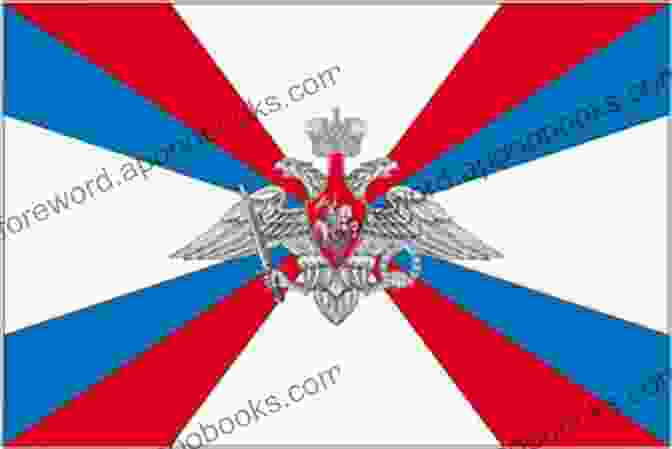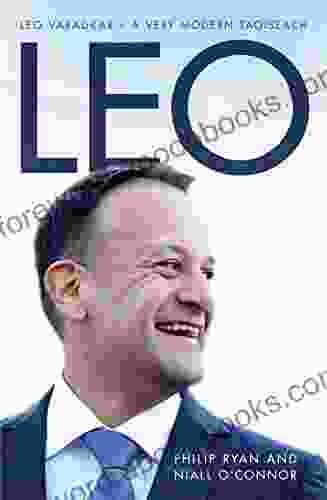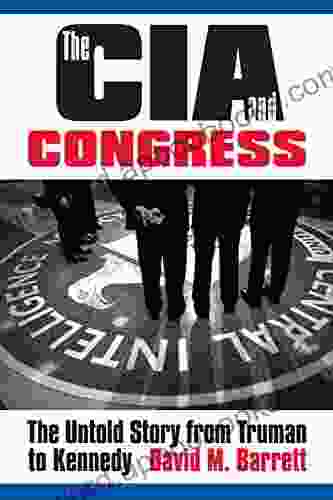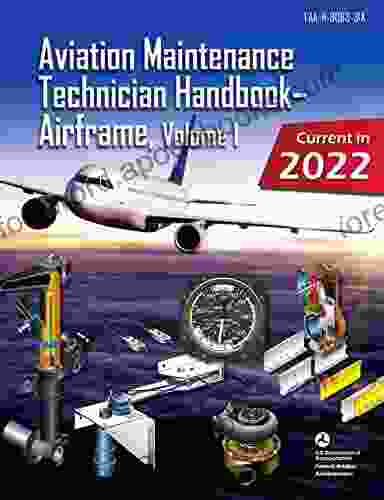Public Control of Armed Forces in the Russian Federation: A Comprehensive Examination


4.7 out of 5
| Language | : | English |
| File size | : | 2453 KB |
| Text-to-Speech | : | Enabled |
| Screen Reader | : | Supported |
| Enhanced typesetting | : | Enabled |
| Word Wise | : | Enabled |
| Print length | : | 212 pages |
| Lending | : | Enabled |
| Hardcover | : | 382 pages |
| Item Weight | : | 1.36 pounds |
| Dimensions | : | 5.83 x 1.19 x 8.27 inches |
In the ever-evolving landscape of international relations, the topic of public control over armed forces has gained paramount importance. The Russian Federation, as a prominent player on the global stage, has implemented a meticulously designed system of public control to ensure transparency, accountability, and civilian oversight of its military apparatus. This article delves into the intricate mechanisms and multifaceted dimensions of public control in the Russian Federation's armed forces.
Legal Framework and Institutional Structures
The foundation of public control in Russia lies in the Constitution, which explicitly establishes the supremacy of civilian authority over the military. Article 11 of the Constitution stipulates that state power shall be exercised through a system of checks and balances, including the subordination of military forces to the civilian government.
To operationalize this constitutional principle, Russia has enacted a comprehensive body of laws and established specialized institutions dedicated to public control. The Federal Law "On Defense" and the Federal Law "On the Status of Military Personnel" provide detailed regulations governing the activities of the armed forces and the rights and responsibilities of military personnel in a democratic society.
The Presidential Council for Civil Society and Human Rights, under the leadership of the President of the Russian Federation, serves as a key platform for public engagement and oversight. The Council includes representatives from various civil society organizations, human rights groups, and expert communities, and regularly reviews the activities of the armed forces.
Multiple Forms of Public Control
Public control in the Russian Federation is not limited to a single form or mechanism. Rather, it encompasses a diverse range of approaches, each playing a distinct role in maintaining civilian supremacy and ensuring transparency.
- Parliamentary Oversight: The Federal Assembly (parliament) of the Russian Federation exercises oversight over the armed forces through its relevant committees, such as the Committee on Defense and Security, which has the authority to review defense policies, military operations, and budgetary allocations.
- Judicial Review: Russian courts play a vital role in upholding the rule of law and ensuring that the actions of the armed forces comply with constitutional and legal provisions. Individuals and organizations have the right to seek legal remedies in cases of alleged misconduct or human rights violations by military personnel.
- Public Hearings and Consultations: Public hearings and consultations provide a direct channel for citizens to voice their concerns and participate in the decision-making process related to defense and military matters. The Ministry of Defense and other relevant agencies frequently organize such events to gather public input and feedback.
- Media Scrutiny: Independent media outlets in Russia, both traditional and online, play a crucial role in informing the public about the activities of the armed forces and holding them accountable. Investigative journalism and critical reporting can uncover potential abuses and promote transparency.
Challenges and Future Prospects
While the Russian Federation has made significant strides in establishing a comprehensive system of public control over its armed forces, there remain ongoing challenges and areas for improvement.
One challenge lies in the balance between maintaining effective public oversight and preserving operational autonomy. Ensuring that public control does not undermine the military's ability to respond effectively to threats and carry out its defense mission requires careful calibration.
Another challenge is addressing the issue of military secrecy. While legitimate security concerns necessitate confidentiality in certain matters, excessive secrecy can hinder public scrutiny and transparency. Striking a balance between protecting sensitive information and providing the public with adequate knowledge about the activities of the armed forces remains an ongoing endeavor.
Despite these challenges, the future prospects for public control in Russia's armed forces appear promising. Ongoing efforts to strengthen civil society organizations, enhance media freedom, and promote civic education will contribute to a more informed and engaged public, which is essential for effective oversight of the military.
The system of public control over armed forces in the Russian Federation represents a complex and evolving model of civilian oversight and accountability. Through a combination of legal frameworks, institutional structures, and diverse mechanisms, Russia has endeavored to ensure that its military apparatus remains subordinate to civilian authority and responsive to the needs of society. While challenges persist, the commitment to public control remains a fundamental pillar of Russia's democratic development and its quest to maintain a balance between national security and civilian supremacy.
4.7 out of 5
| Language | : | English |
| File size | : | 2453 KB |
| Text-to-Speech | : | Enabled |
| Screen Reader | : | Supported |
| Enhanced typesetting | : | Enabled |
| Word Wise | : | Enabled |
| Print length | : | 212 pages |
| Lending | : | Enabled |
| Hardcover | : | 382 pages |
| Item Weight | : | 1.36 pounds |
| Dimensions | : | 5.83 x 1.19 x 8.27 inches |
Do you want to contribute by writing guest posts on this blog?
Please contact us and send us a resume of previous articles that you have written.
 Book
Book Novel
Novel Page
Page Chapter
Chapter Text
Text Story
Story Genre
Genre Reader
Reader Library
Library Paperback
Paperback E-book
E-book Magazine
Magazine Newspaper
Newspaper Paragraph
Paragraph Sentence
Sentence Bookmark
Bookmark Shelf
Shelf Glossary
Glossary Bibliography
Bibliography Foreword
Foreword Preface
Preface Synopsis
Synopsis Annotation
Annotation Footnote
Footnote Manuscript
Manuscript Scroll
Scroll Codex
Codex Tome
Tome Bestseller
Bestseller Classics
Classics Library card
Library card Narrative
Narrative Biography
Biography Autobiography
Autobiography Memoir
Memoir Reference
Reference Encyclopedia
Encyclopedia Rachel Brown Chidsey
Rachel Brown Chidsey Elizabeth N Love
Elizabeth N Love Rosanne Welch
Rosanne Welch Stephen Budiansky
Stephen Budiansky Gregg Olsen
Gregg Olsen Rob Salerno
Rob Salerno Richard F Dame
Richard F Dame J Bronson
J Bronson Andrew L Yarrow
Andrew L Yarrow David Joyner
David Joyner Sylvie Stewart
Sylvie Stewart Gianno Caldwell
Gianno Caldwell James Frey
James Frey David Crystal
David Crystal Emily Dickinson
Emily Dickinson Ruth Freeman
Ruth Freeman Dorothy Fink Ungerleider
Dorothy Fink Ungerleider David C Unger
David C Unger Jerome R Corsi
Jerome R Corsi Bruce S Jansson
Bruce S Jansson
Light bulbAdvertise smarter! Our strategic ad space ensures maximum exposure. Reserve your spot today!

 Tom HayesUnlock the Secrets of Blues Keyboard Playing with the Complete Blues Keyboard...
Tom HayesUnlock the Secrets of Blues Keyboard Playing with the Complete Blues Keyboard... Hassan CoxFollow ·17.9k
Hassan CoxFollow ·17.9k Nathaniel HawthorneFollow ·14.3k
Nathaniel HawthorneFollow ·14.3k Jordan BlairFollow ·4.7k
Jordan BlairFollow ·4.7k Forrest ReedFollow ·19.3k
Forrest ReedFollow ·19.3k Raymond ParkerFollow ·5k
Raymond ParkerFollow ·5k Joseph ConradFollow ·6.6k
Joseph ConradFollow ·6.6k Hugh ReedFollow ·19.6k
Hugh ReedFollow ·19.6k Derek BellFollow ·11.5k
Derek BellFollow ·11.5k

 Douglas Powell
Douglas PowellEscape into a World of Sweet Love and Second Chances with...
Prepare yourself...

 Garrett Powell
Garrett PowellMaster Badminton: A Comprehensive Guide to the Thrilling...
Are you ready to step into the world of...

 Deacon Bell
Deacon BellTrailer Park Trickster: The Adam Binder Novels
Book 1: The...

 Oscar Bell
Oscar BellLeo: The Very Modern Taoiseach
Leo Varadkar's journey...
4.7 out of 5
| Language | : | English |
| File size | : | 2453 KB |
| Text-to-Speech | : | Enabled |
| Screen Reader | : | Supported |
| Enhanced typesetting | : | Enabled |
| Word Wise | : | Enabled |
| Print length | : | 212 pages |
| Lending | : | Enabled |
| Hardcover | : | 382 pages |
| Item Weight | : | 1.36 pounds |
| Dimensions | : | 5.83 x 1.19 x 8.27 inches |













